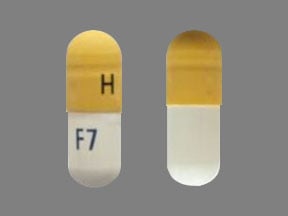
Gilenya Coupons & Savings Card – Discount Prices from $168.30
Brand for: Fingolimod
My prescription
Edit
0.5MG, Fingolimod (30 Capsules)
Select pharmacy

Walgreens
$168.30
COUPON PRICE
Walmart
$305.71
COUPON PRICE
Albertsons
$659.75
COUPON PRICEGilenya savings card
Show this card to your pharmacist
Walgreens
$168.30
BIN
ID
PCN
GRP
019876
LHD836239A
CHIPPO
LHX
Powered by
Related sphingosine receptor modulators prescriptions
More prescriptions for multiple sclerosis
Related sphingosine receptor modulators prescriptions
More prescriptions for multiple sclerosis
Price history for Gilenya (brand) & Fingolimod (generic)
30 Capsules, 0.5MG
Average retail price for Gilenya
Average retail price for Fingolimod
Average SaveHealth price for Fingolimod
Our price history data is based on aggregated prescription data collected from participating pharmacies in America. Our prescription data updates daily to reflect the latest price changes. If you notice a missing data point, it means there wasn't sufficient data available to generate a monetary value for that date.
Over the last 12 months, the average discount price of Gilenya is $1045.21 using the SaveHealth savings card. That's an average savings of 92.55% on Gilenya with our discount card.
*Retail prices are based on pharmacy claims data, and may not be accurate when we don't have enough claims.
Gilenya (Fingolimod) dosage forms
Dosage Quantity Price from Per unit 0.5MG 30 Capsules $168.30 $5.61
| Dosage | Quantity | Price from | Per unit |
|---|---|---|---|
| 0.5MG | 30 Capsules | $168.30 | $5.61 |
What does Gilenya do for MS?
Gilenya is a medication used to treat relapsing forms of multiple sclerosis (MS). It works by reducing the frequency of flare-ups and slowing the progression of physical disability. Gilenya helps by preventing certain white blood cells from reaching the central nervous system, thereby reducing inflammation and damage to nerve cells.
What are the most common side effects of Gilenya?
The most common side effects of Gilenya include headache, back pain, diarrhea, cough, and elevated liver enzymes. Some patients may also experience flu-like symptoms, sinusitis, and abdominal pain. It is important for patients to discuss any side effects with their healthcare provider, as they can provide guidance on managing them.
Is Gilenya an immunosuppressant?
Yes, Gilenya (fingolimod) is considered an immunosuppressant. It works by modulating the immune system to reduce the frequency of relapses in patients with multiple sclerosis.
What is the cost of Gilenya?
The cost of Gilenya can vary depending on factors such as the pharmacy, location, insurance coverage, and any available discounts or assistance programs. Without insurance, the price can be quite high, often several thousand dollars for a month's supply. It is recommended to check with local pharmacies or insurance providers for the most accurate and up-to-date pricing information. Additionally, Novartis, the manufacturer, may offer patient assistance programs to help reduce costs for eligible individuals.
How much is fingolimod without insurance?
The cost of fingolimod without insurance can vary significantly depending on the pharmacy and location. On average, the price for a 30-day supply of fingolimod can range from $8,000 to $10,000. It is advisable to check with local pharmacies for specific pricing and to explore any available discount programs or patient assistance options.
